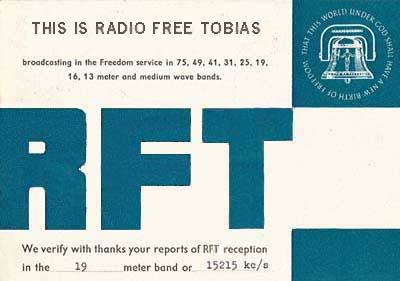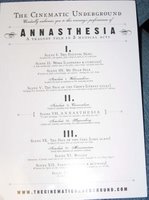AFI & Sick of It All @ Newport Music Hall
OK, so I'm not going to give a total rundown of this show. But I'm going to address a couple things.
First off, I went to this show because I was able to get in free. I think tickets were around $20 and sold out weeks in advance so... I've followed AFI for awhile and I was interested to see them, even after the little transemographication they've gone through. I wish I could say that I totally used to be into hardcore, but alas, I never was.
A friend of mine used to really be into Sick of It All but I had a hard time getting into it.
In fact, I'll be totally honest and the most appealing prospect about this concert going into it was the likelihood that some mall-goth would get beat up by a hardcore kid with gauges and a baseball cap.
In the minutes leading up to the AFI-mania, during Sick of it All's set (which was bordering on electrifying) I saw lots of green glowsticks flying around. Something about this seemed poignant considering the circumstances.
The highlight of the evening was when a group of what looked like four 99.7 DJ's tried to barrel down to the dancefloor, only to be stopped by a human blockade: shoulder to shoulder goth chicks, guys with eyeliner, college students. Somewhere in their brain functions (I'm guessing Natty Light was the main catalyst for the chemical process) they decided to try to push their way through a crowd of 20 odd people and instead almost knocked most of them over.
Someone took offense and confronted the College Night Cornhole cadre. Words were had. Beers flew. A brawl seriously seemed ready to break out (probably the last thing I wanted to see was a full-fledged melee, despite my general interest in the situation.)
One of them, a short stocky man wearing a backwards white baseball cap and a black hoody with the word BOSTON emblazoned on the back threw an open-handed slap on a clean cut college kid. I'm not really sure what happened next or what, but eventually one of the group of jerkholes through a sucker punch on a guy literally a foot and a half taller and scurried away.
Things actually simmered because the disturbance was gone, but in the group's wake was a general din of "did you see that guy? what dick" and such... it was like an electric circuit, how quickly word of the fight travelled around me. Obviously it was a major point of interest.
Oh, and AFI's set was OK.
First off, I went to this show because I was able to get in free. I think tickets were around $20 and sold out weeks in advance so... I've followed AFI for awhile and I was interested to see them, even after the little transemographication they've gone through. I wish I could say that I totally used to be into hardcore, but alas, I never was.
A friend of mine used to really be into Sick of It All but I had a hard time getting into it.
In fact, I'll be totally honest and the most appealing prospect about this concert going into it was the likelihood that some mall-goth would get beat up by a hardcore kid with gauges and a baseball cap.
In the minutes leading up to the AFI-mania, during Sick of it All's set (which was bordering on electrifying) I saw lots of green glowsticks flying around. Something about this seemed poignant considering the circumstances.
The highlight of the evening was when a group of what looked like four 99.7 DJ's tried to barrel down to the dancefloor, only to be stopped by a human blockade: shoulder to shoulder goth chicks, guys with eyeliner, college students. Somewhere in their brain functions (I'm guessing Natty Light was the main catalyst for the chemical process) they decided to try to push their way through a crowd of 20 odd people and instead almost knocked most of them over.
Someone took offense and confronted the College Night Cornhole cadre. Words were had. Beers flew. A brawl seriously seemed ready to break out (probably the last thing I wanted to see was a full-fledged melee, despite my general interest in the situation.)
One of them, a short stocky man wearing a backwards white baseball cap and a black hoody with the word BOSTON emblazoned on the back threw an open-handed slap on a clean cut college kid. I'm not really sure what happened next or what, but eventually one of the group of jerkholes through a sucker punch on a guy literally a foot and a half taller and scurried away.
Things actually simmered because the disturbance was gone, but in the group's wake was a general din of "did you see that guy? what dick" and such... it was like an electric circuit, how quickly word of the fight travelled around me. Obviously it was a major point of interest.
Oh, and AFI's set was OK.










